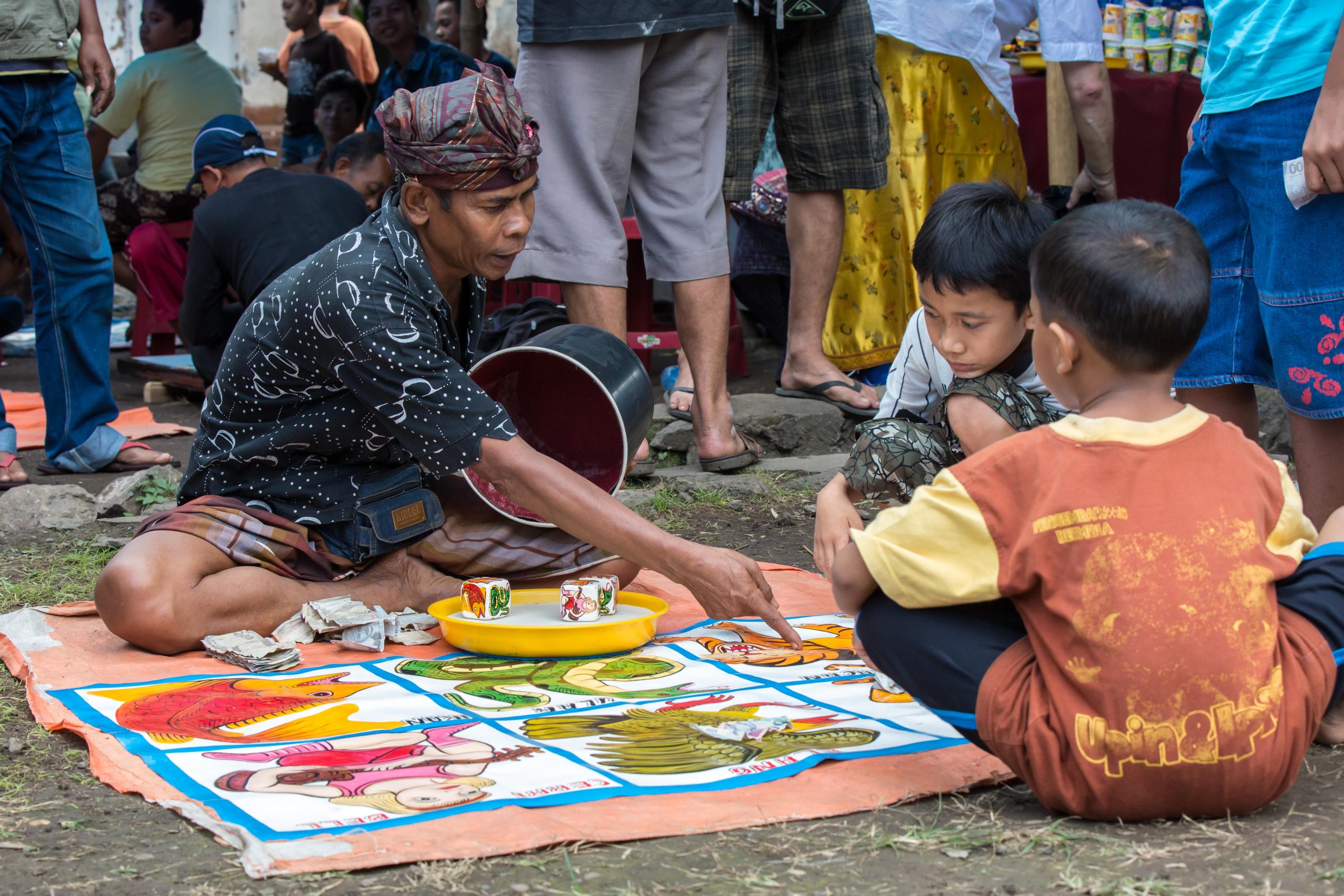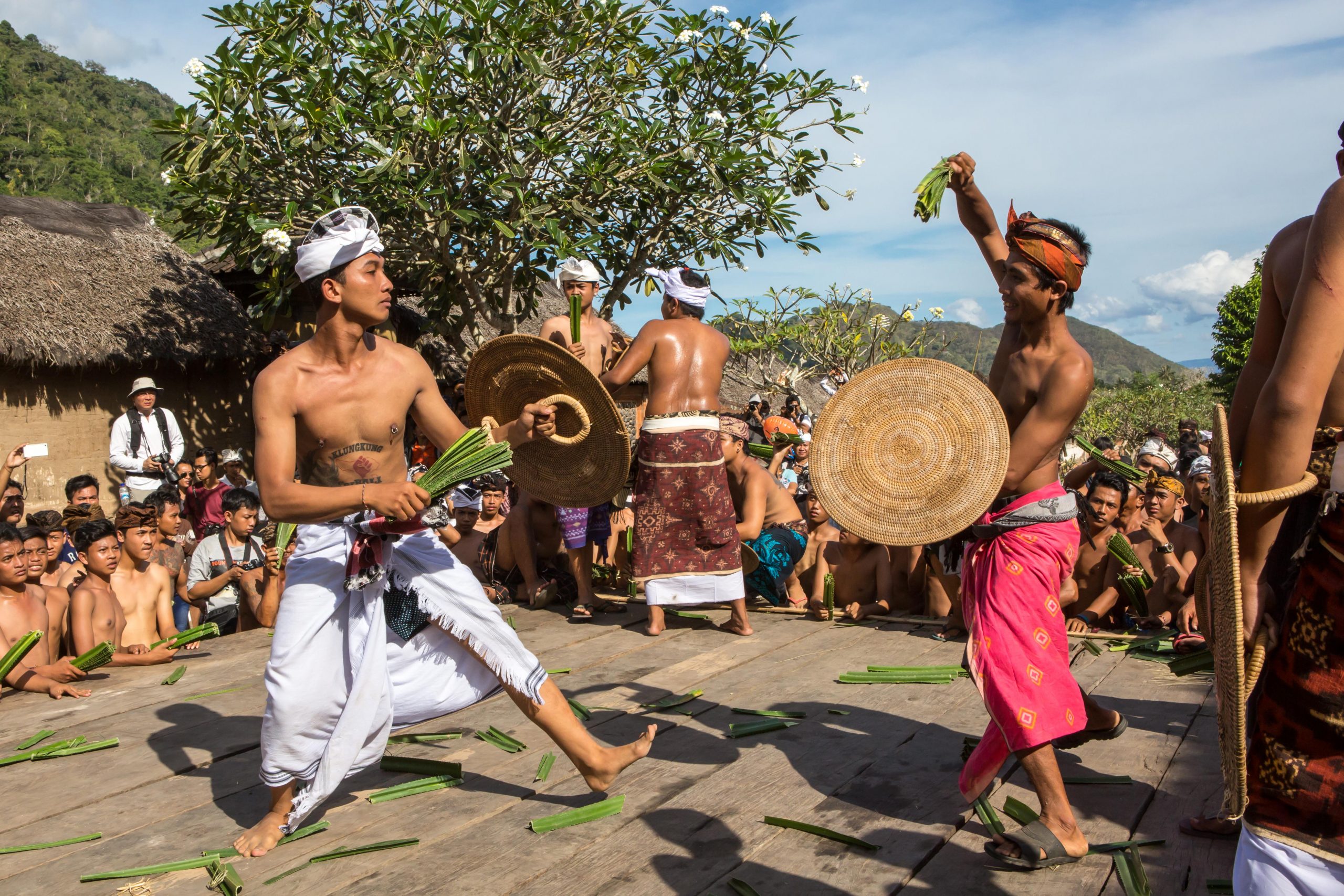The ancient village of Tenganan Pegringsingan in East Bali is home to the Bali Aga, descendants of the original Balinese. The Bali Aga of Tenganan still follow their pre-Hindu rules and traditions and do not recognise casts like the Balinese Hindu do. They follow written rules inherited from their ancestors, awig-awig, and worship Dewa Indra, the god of war, as the supreme god of all gods and that their village was a gift of Lord Indra to their ancestors, wong peneges. Only those born in the village may stay in the village and if a member of the community marries outside of Tenganan they have to leave the village, ensuring that the bloodline is carried down from one generation to the next.
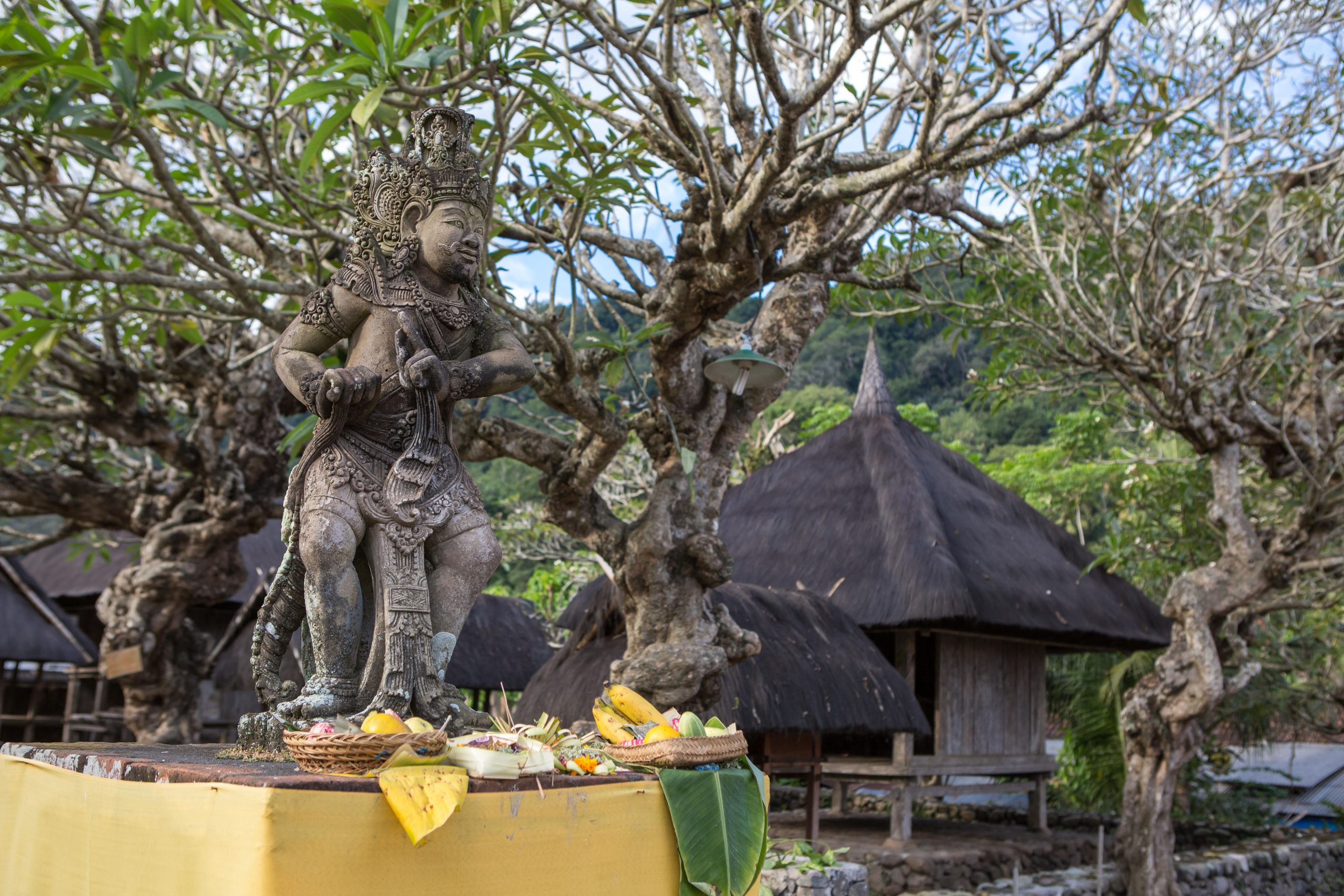
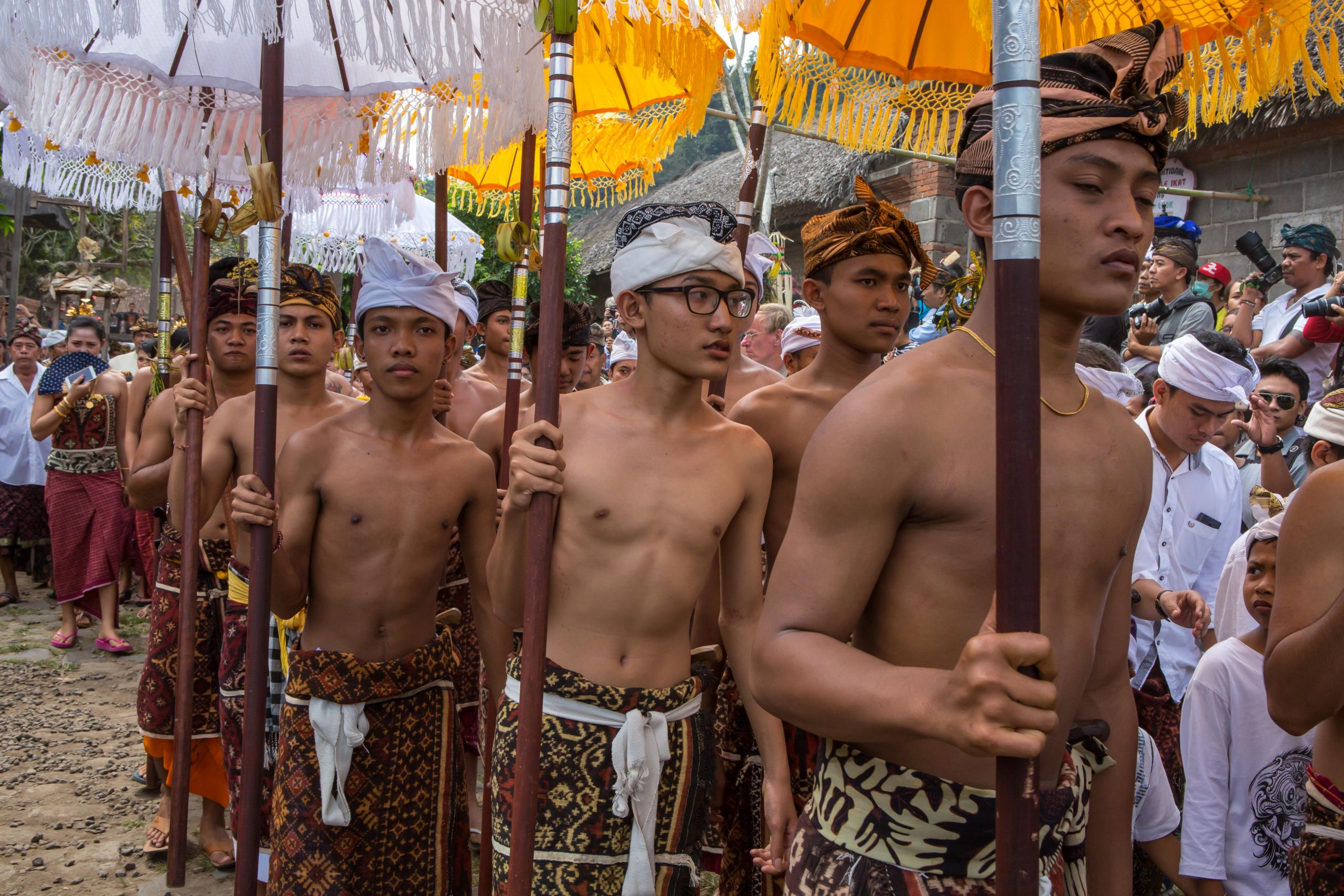
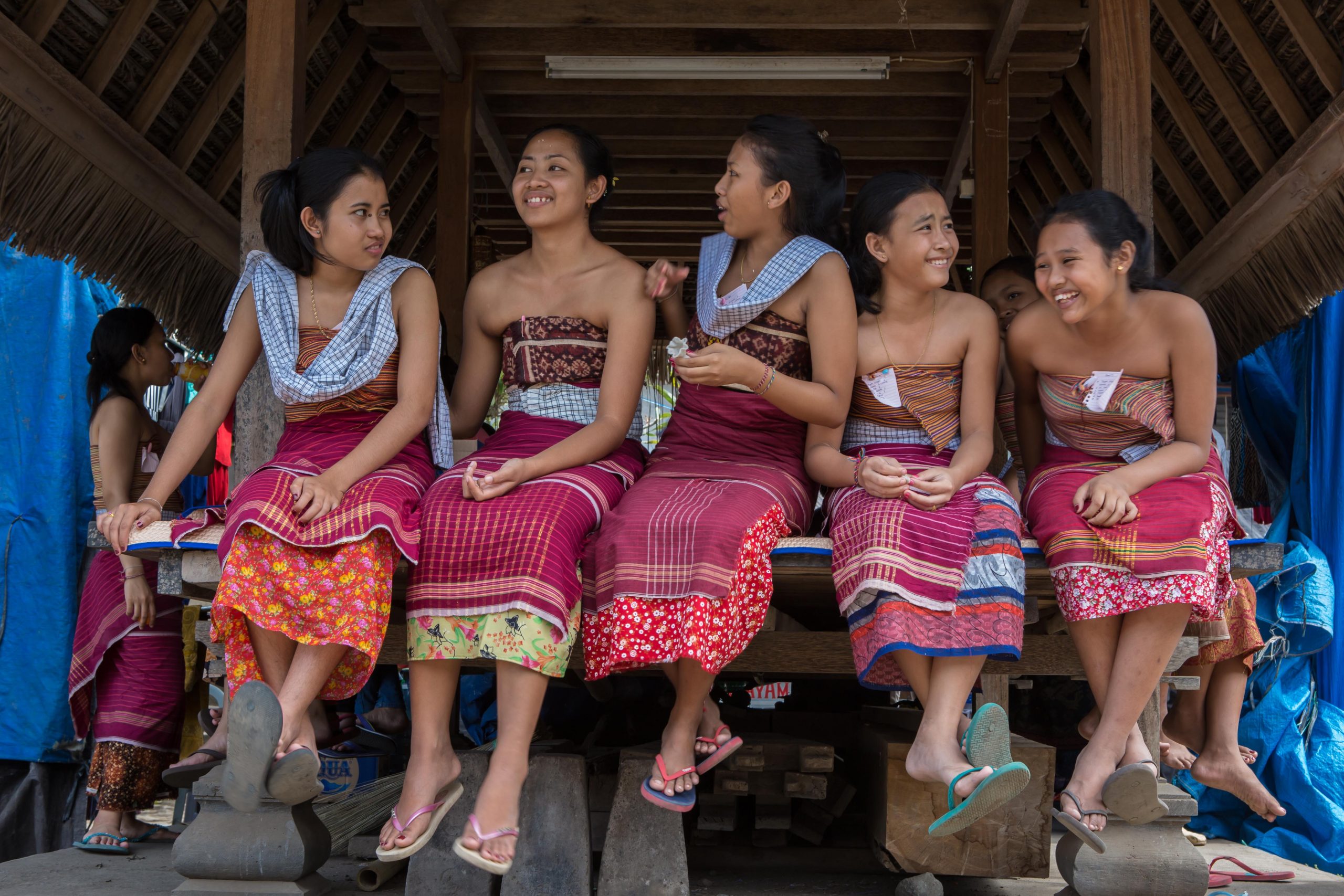
One of the unique traditions of the Bali Aga of Tenganan is Mekaré-kare, or Pandan War, where men fight each other using thorny “pandanus” leaves. This ritual honours Dewa Indra, God of War, and is usually held in Sasih Kelima (Sasih Sembah, the fifth month of the Balinese calendar) around June and July each year. Mekaré-kare is the culmination of a month long ceremony Ngusaba Sambah and is organised 2-4 times, accompanied with offerings to the ancestors.
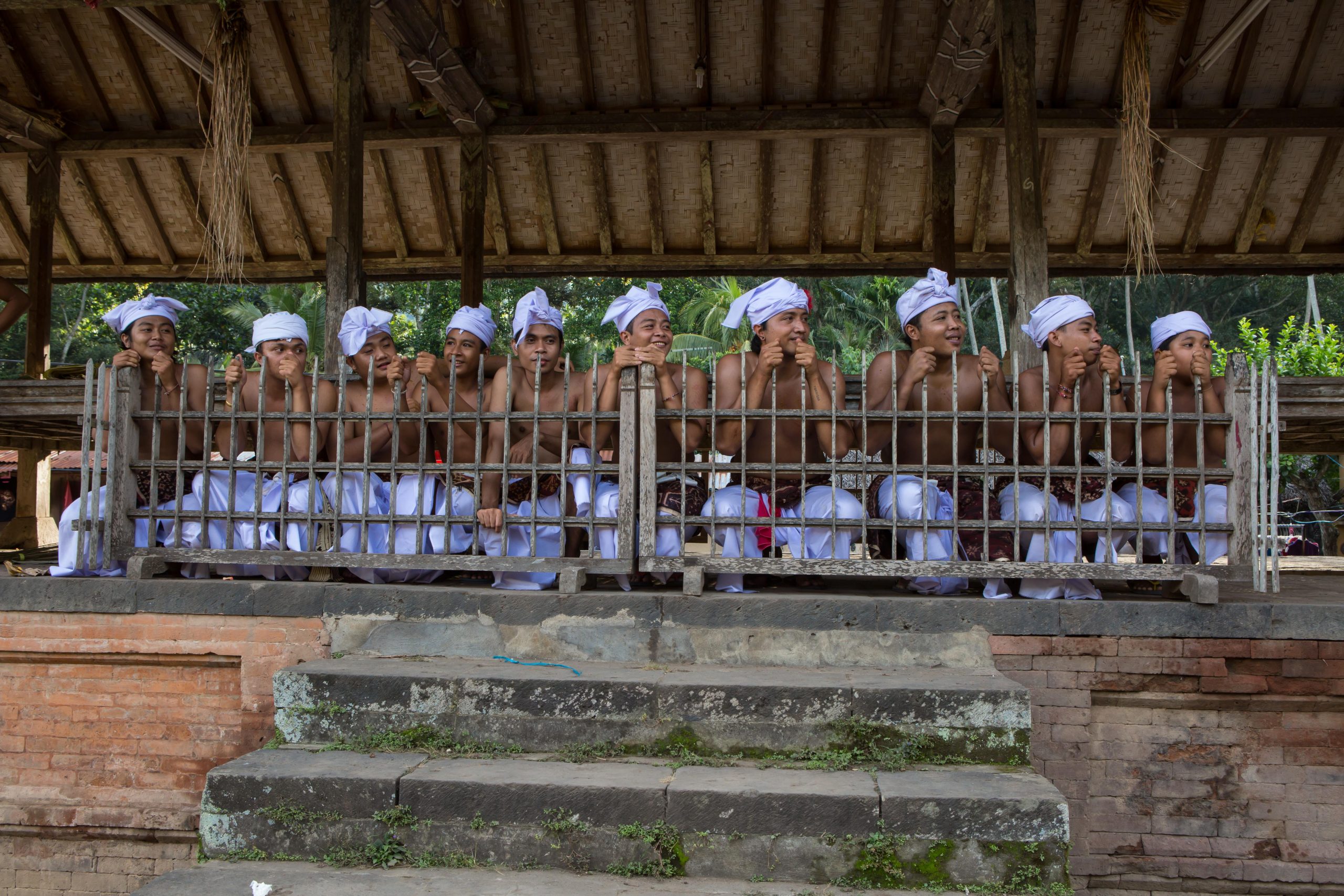
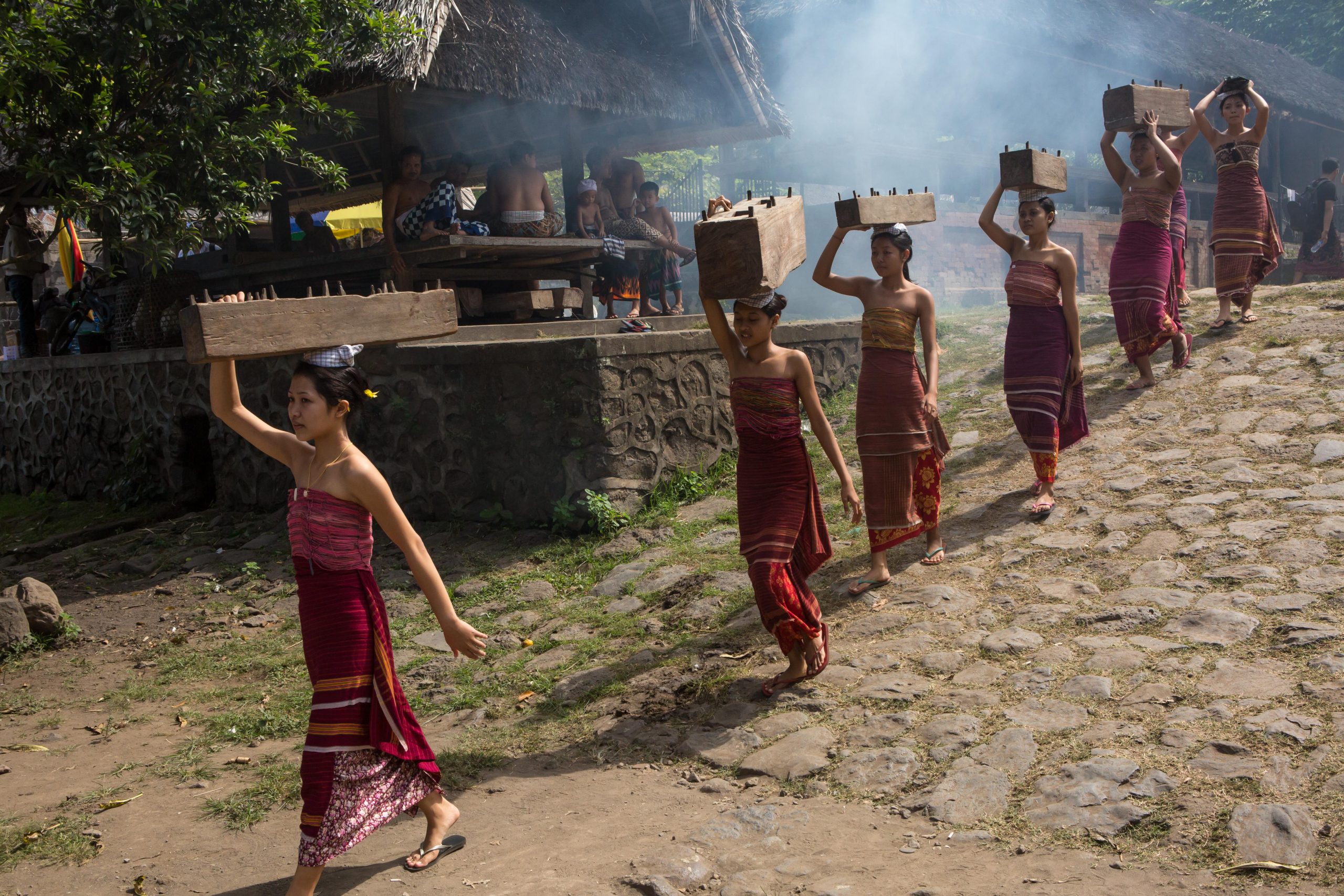
A group of virgin girls carry the traditional sacred gamelan instruments in preparation of the event.
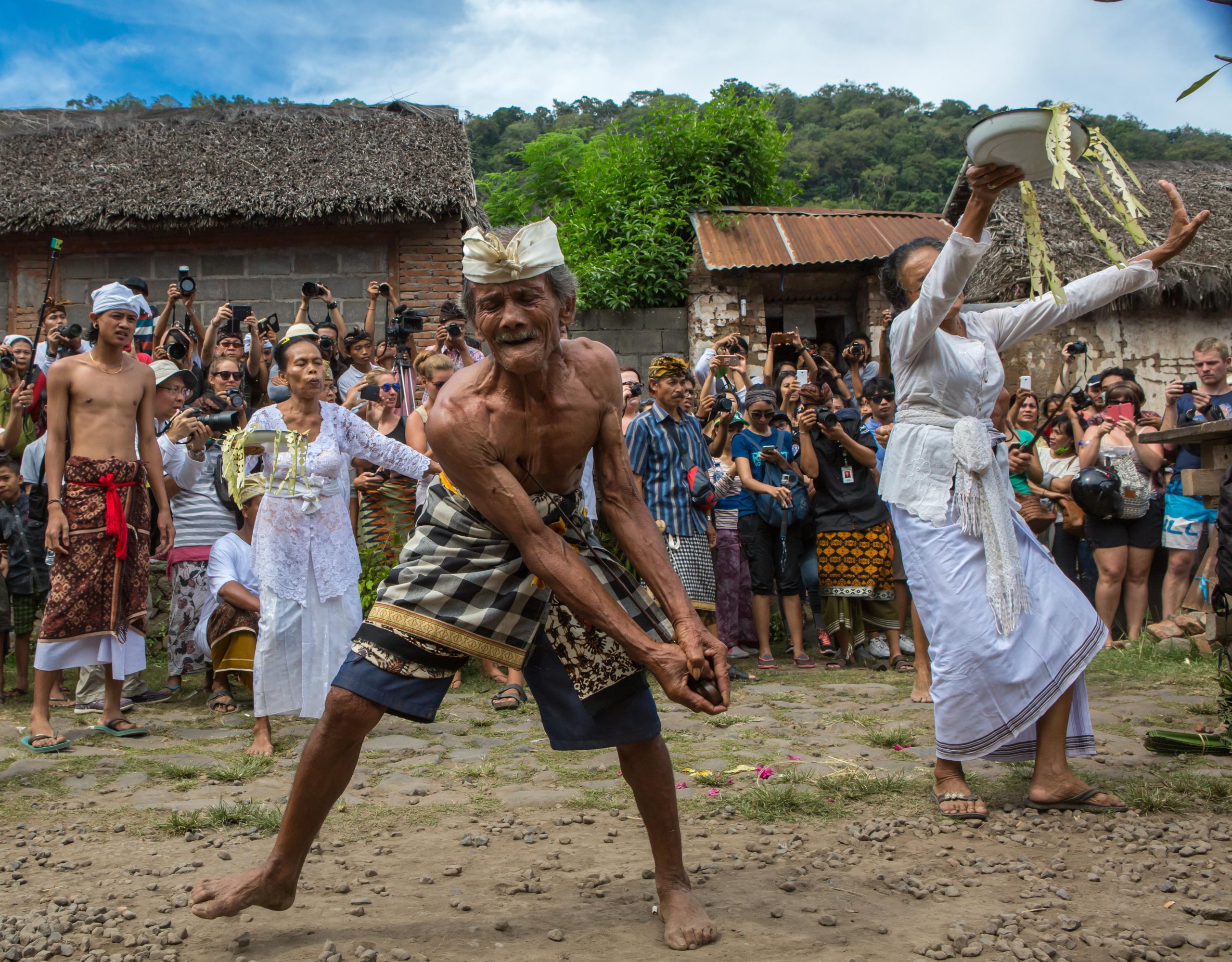
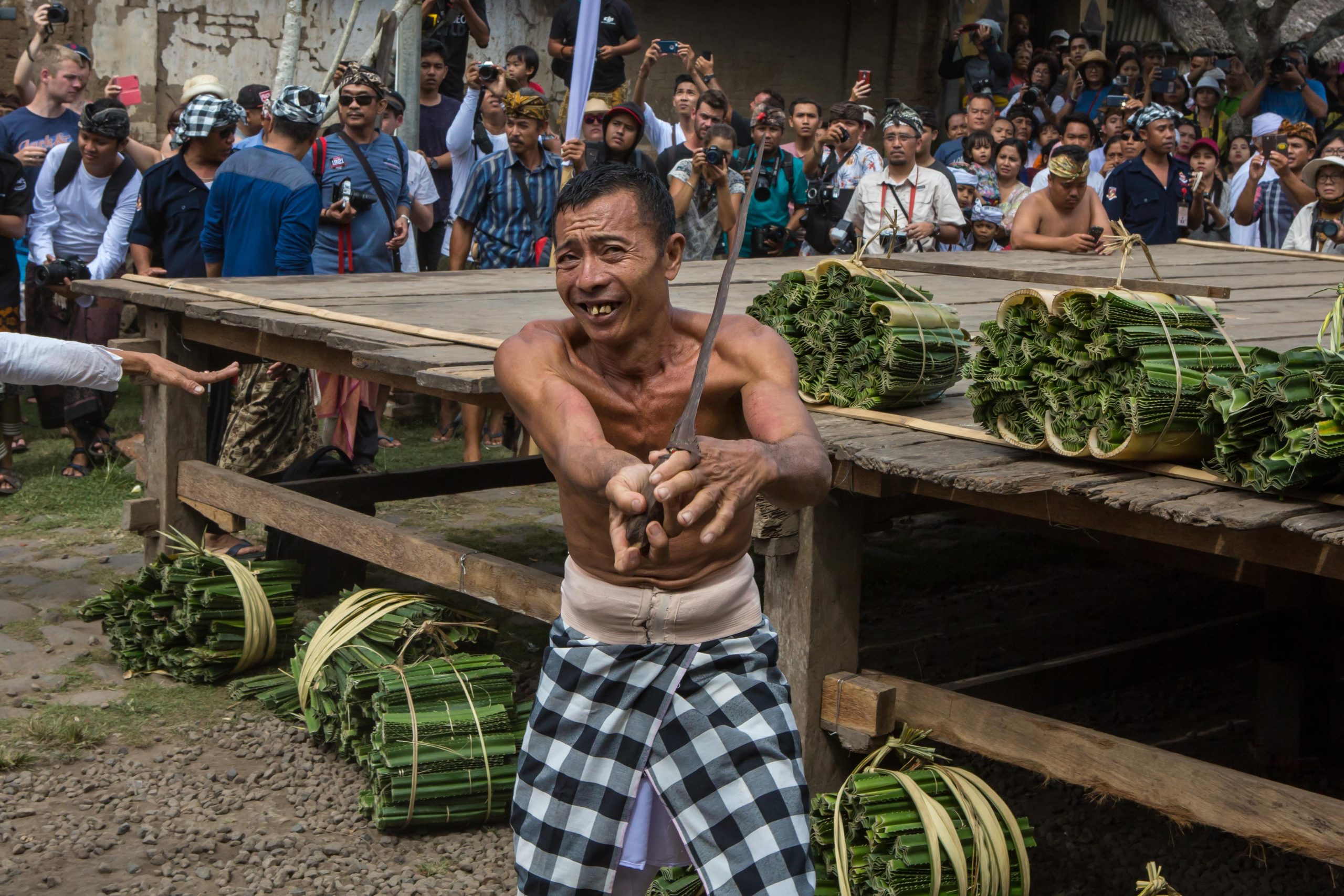
During the lead-up to the main event some of the village elders go into a deep trance. Through the ritual of trance they provide the link between earth and the spirit world, essential to assure the gods accept the ceremonial offerings. The men try to attack Rangda, the spirit of evil, with their keris, a ceremonial dagger, but Rangda turns the keris against themselves and the men try to stab themselves. This self-stabbing is called ngurek.
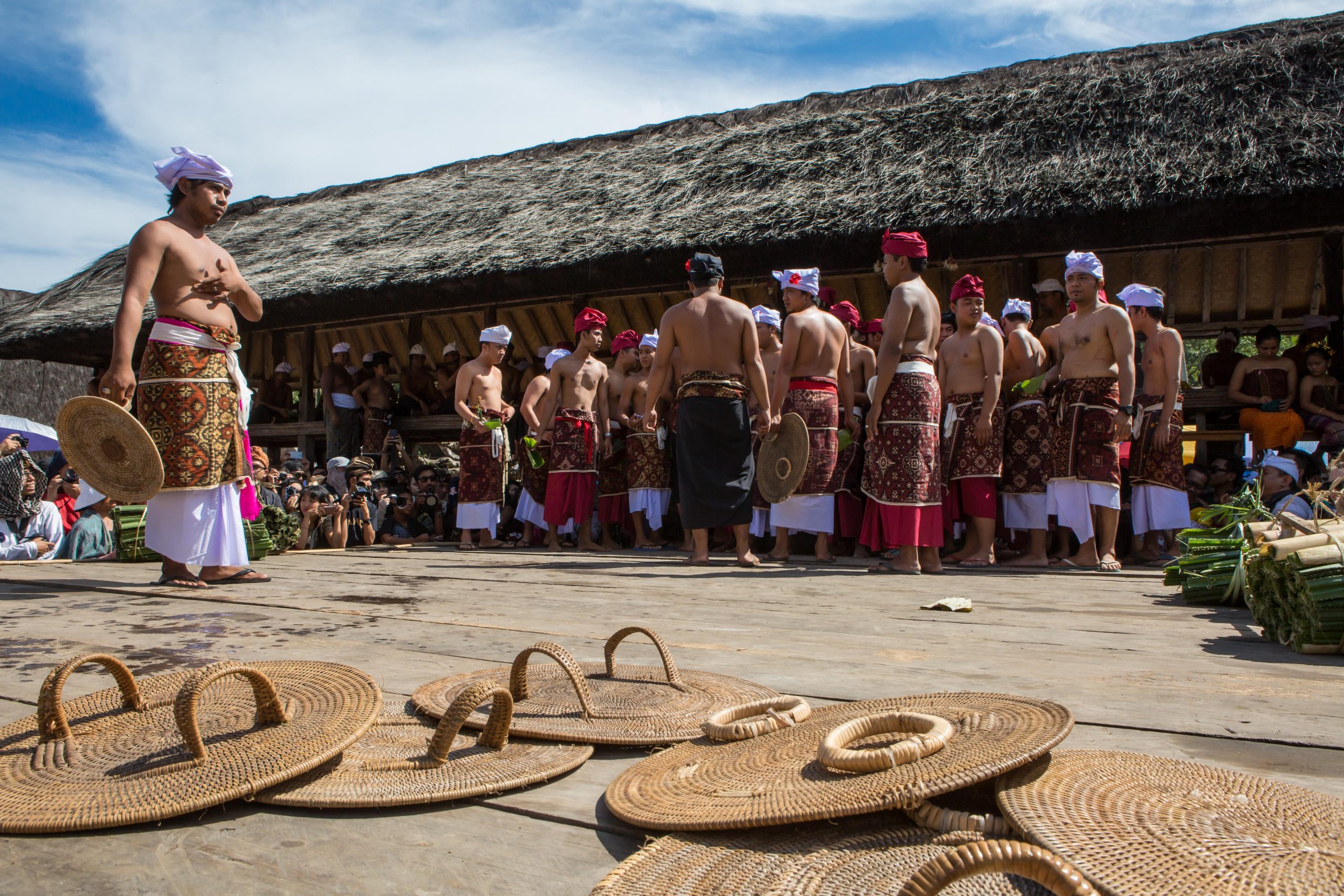
Men and boys alike participate in the Mekaré-kare and perform bare-chested and wearing only a traditional Kamen, woven Pegringsingan fabric, Saput (scarve) and Udeng (headband). Before the fight begins the men drink Tuak, a Balinese sweet and sour alcoholic drink made from the sap of a palm tree.
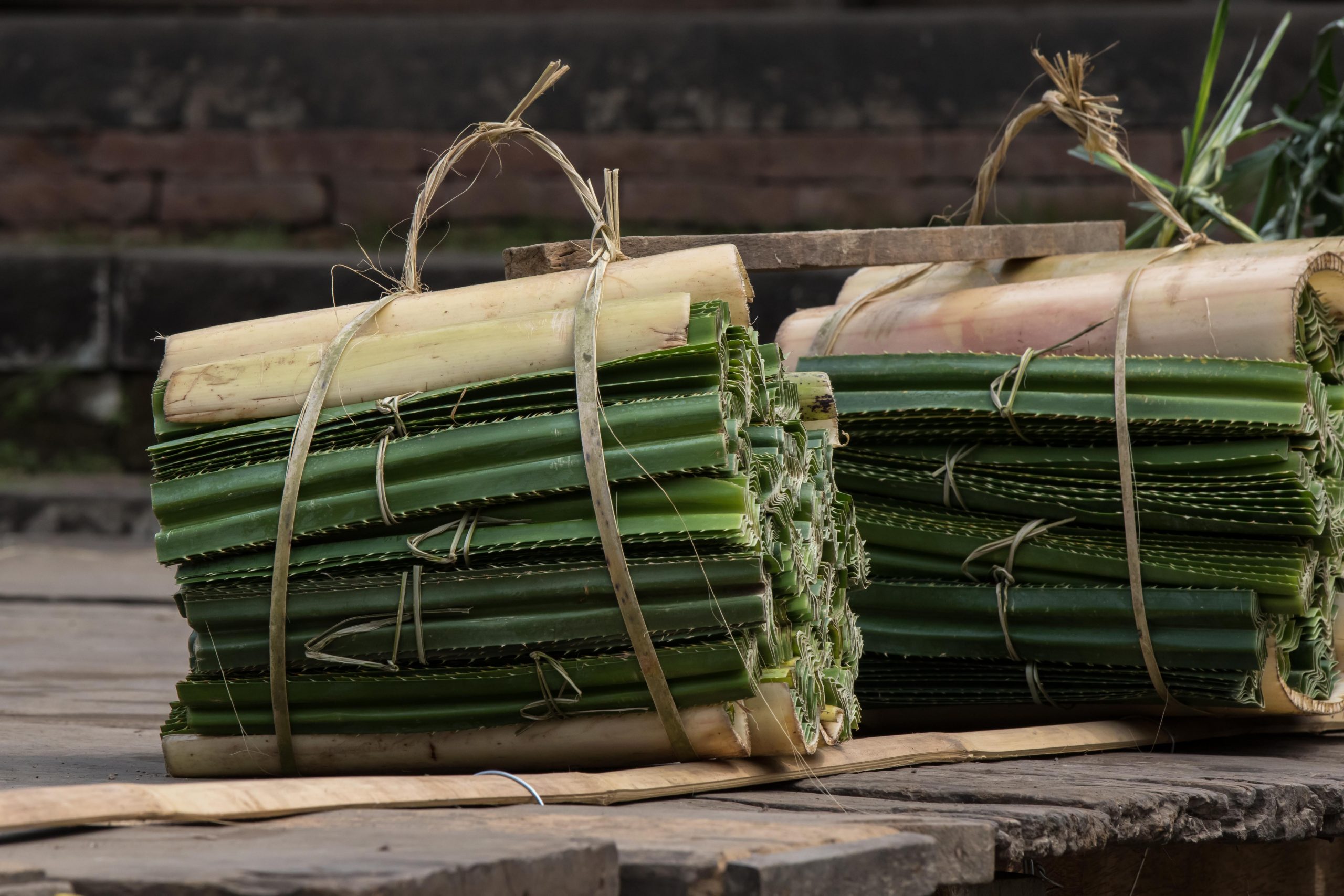
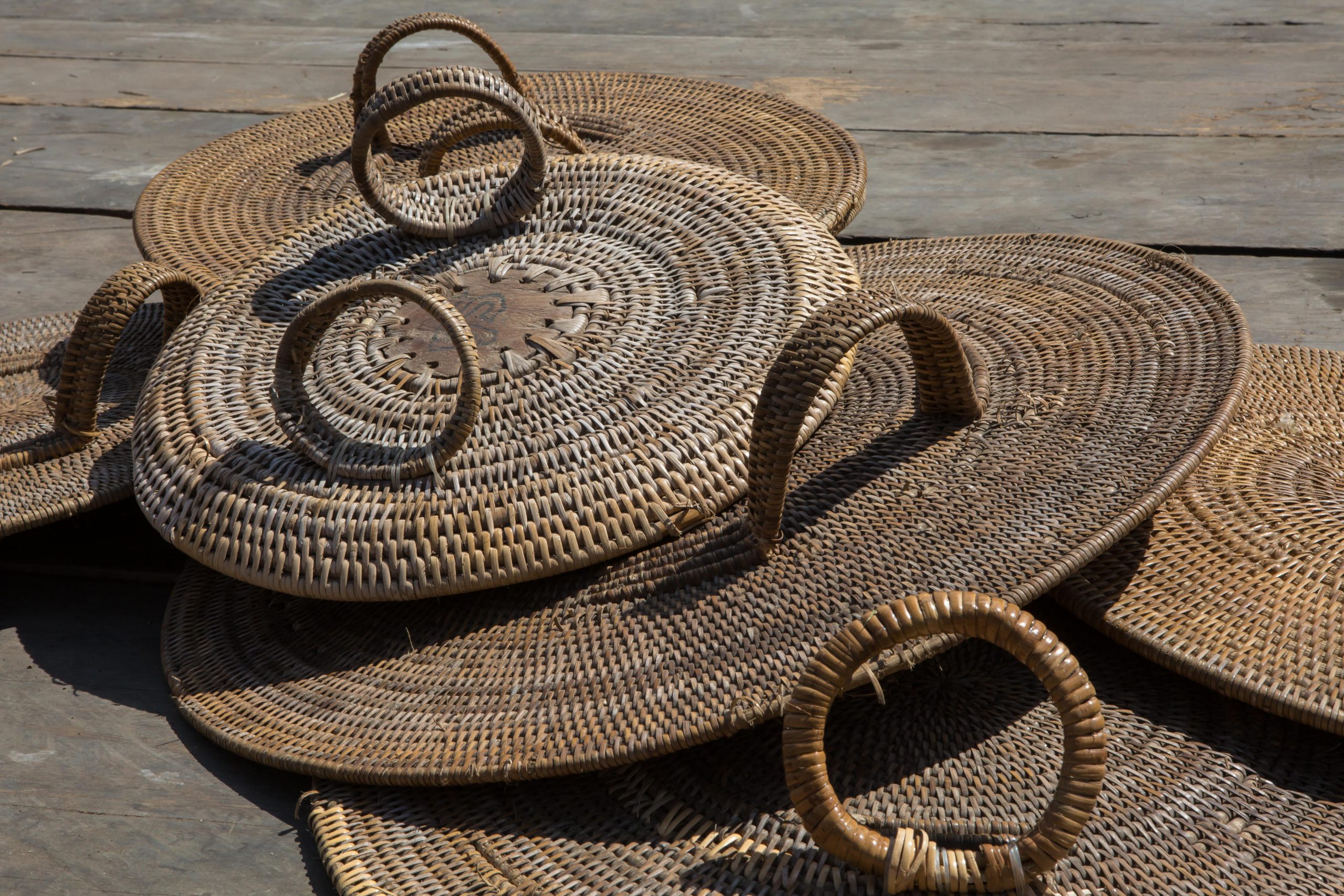
The sacred fight uses green pandanus leaves full of sharp thorns on both sides, and a shield made from rattan for protection.
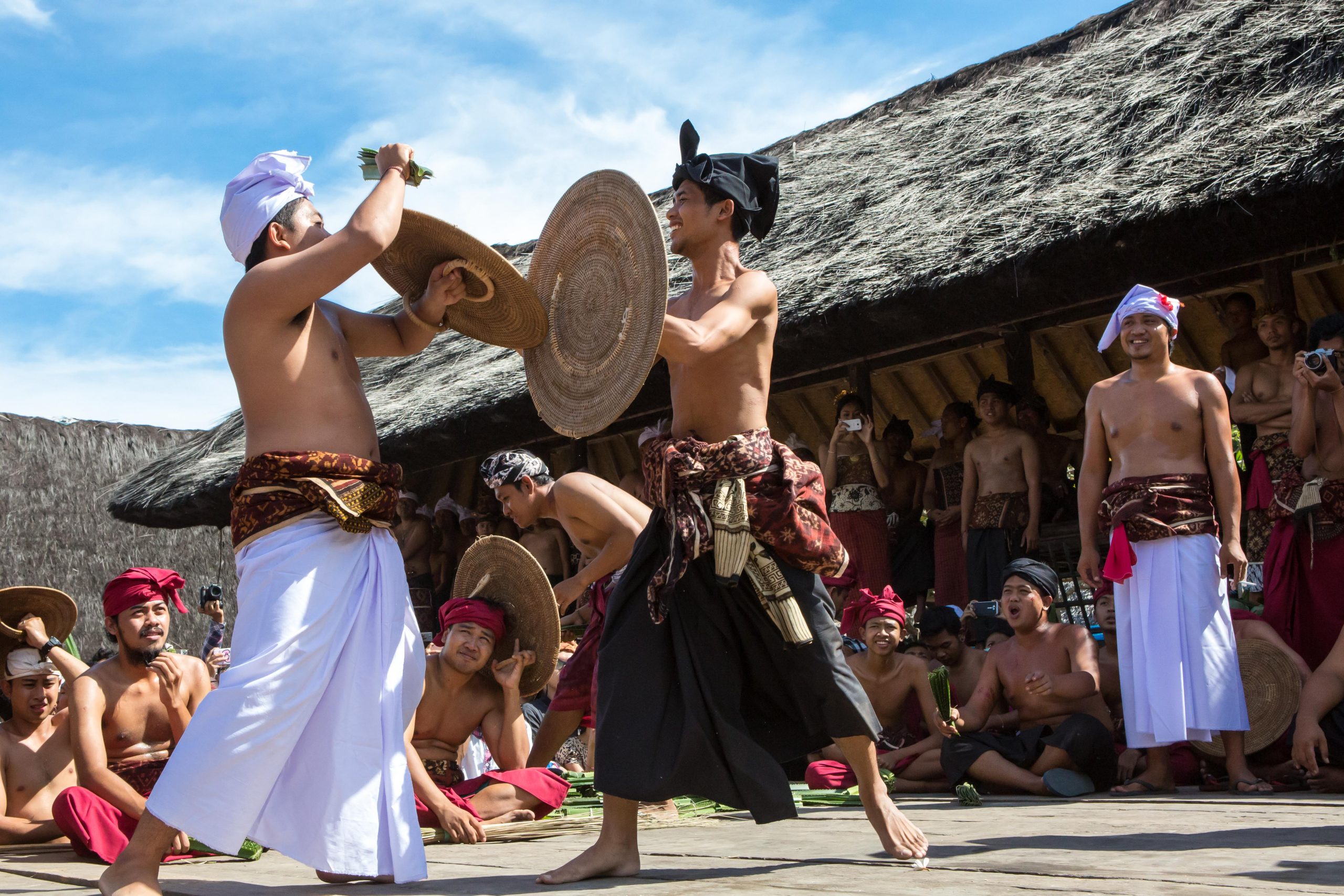
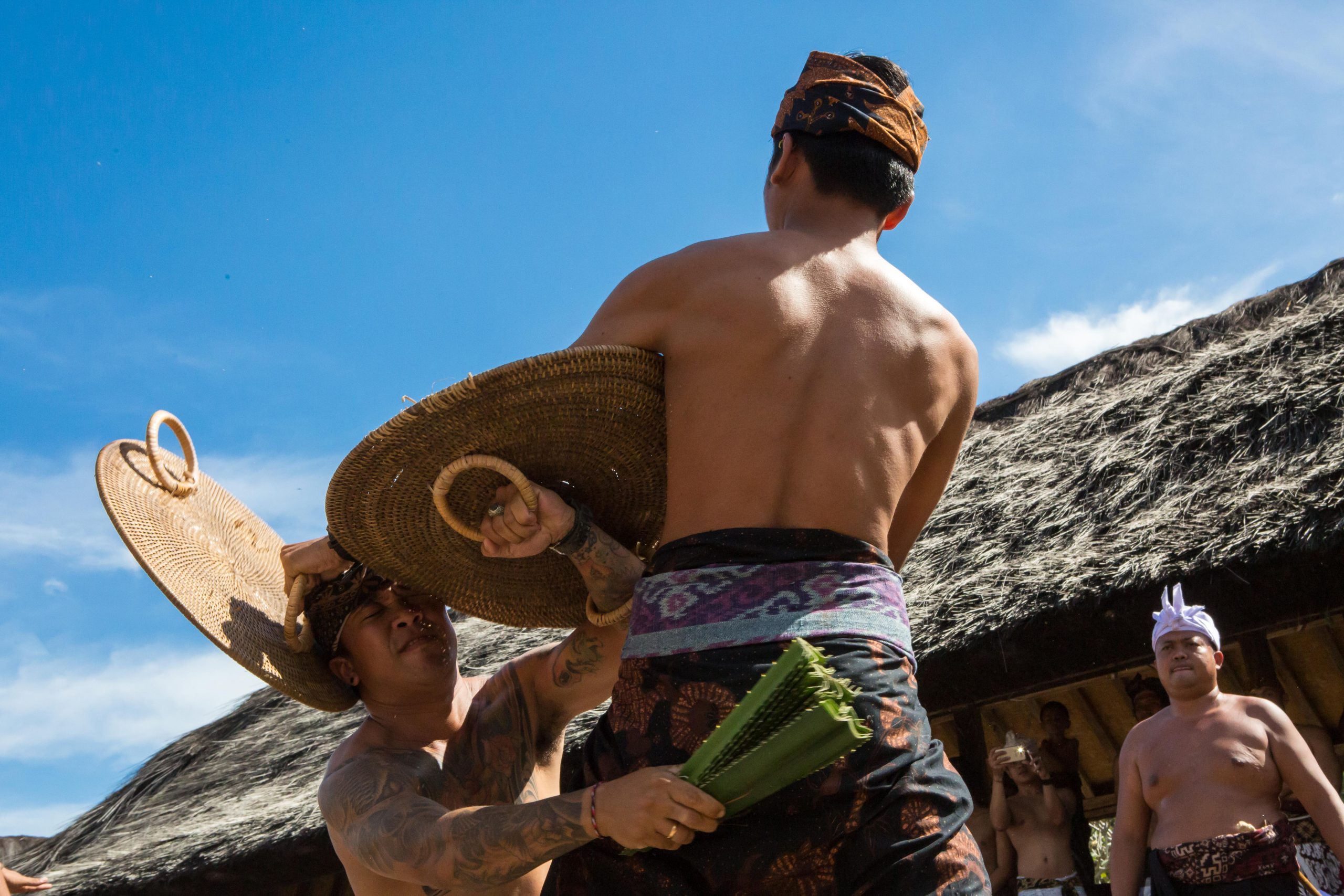
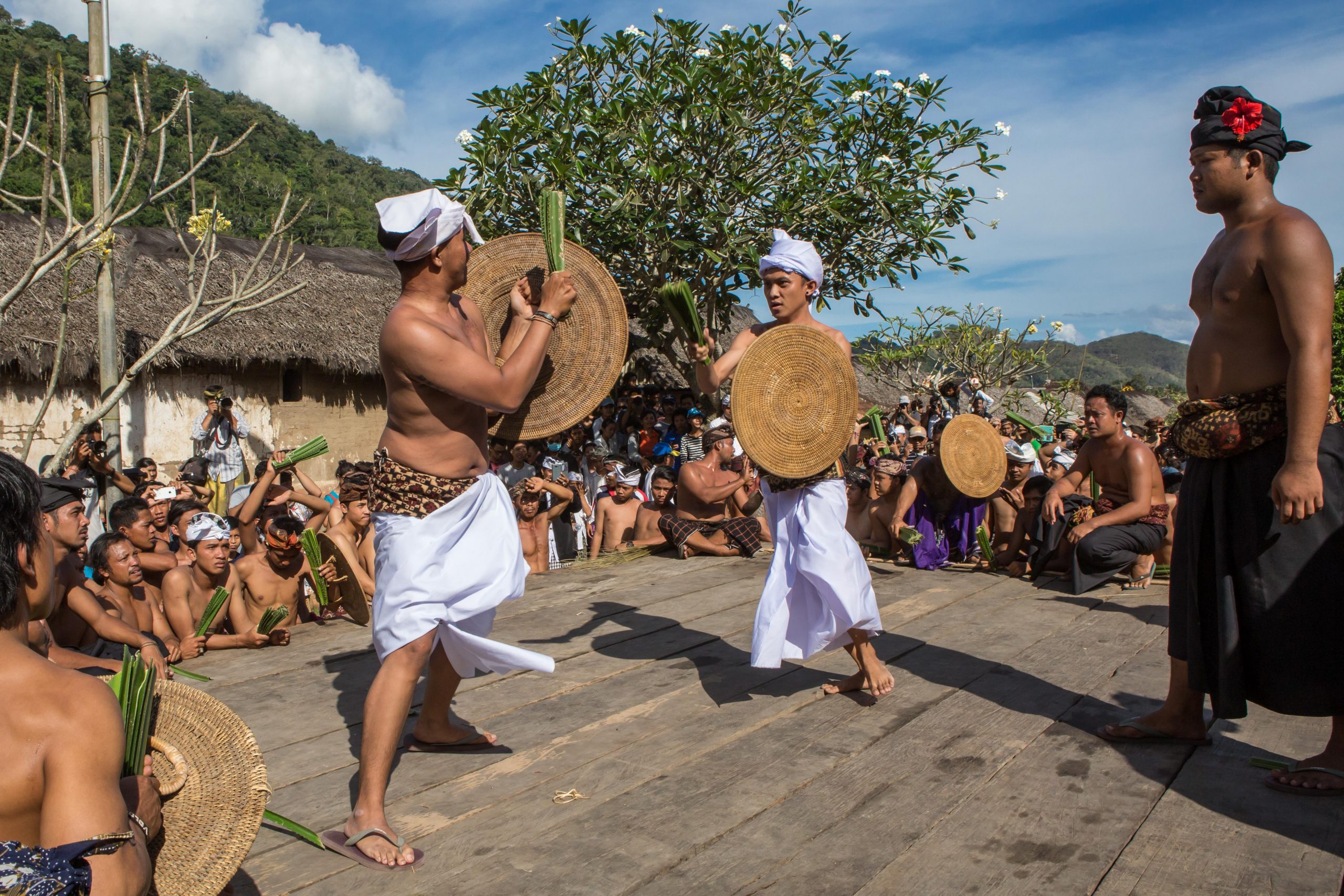
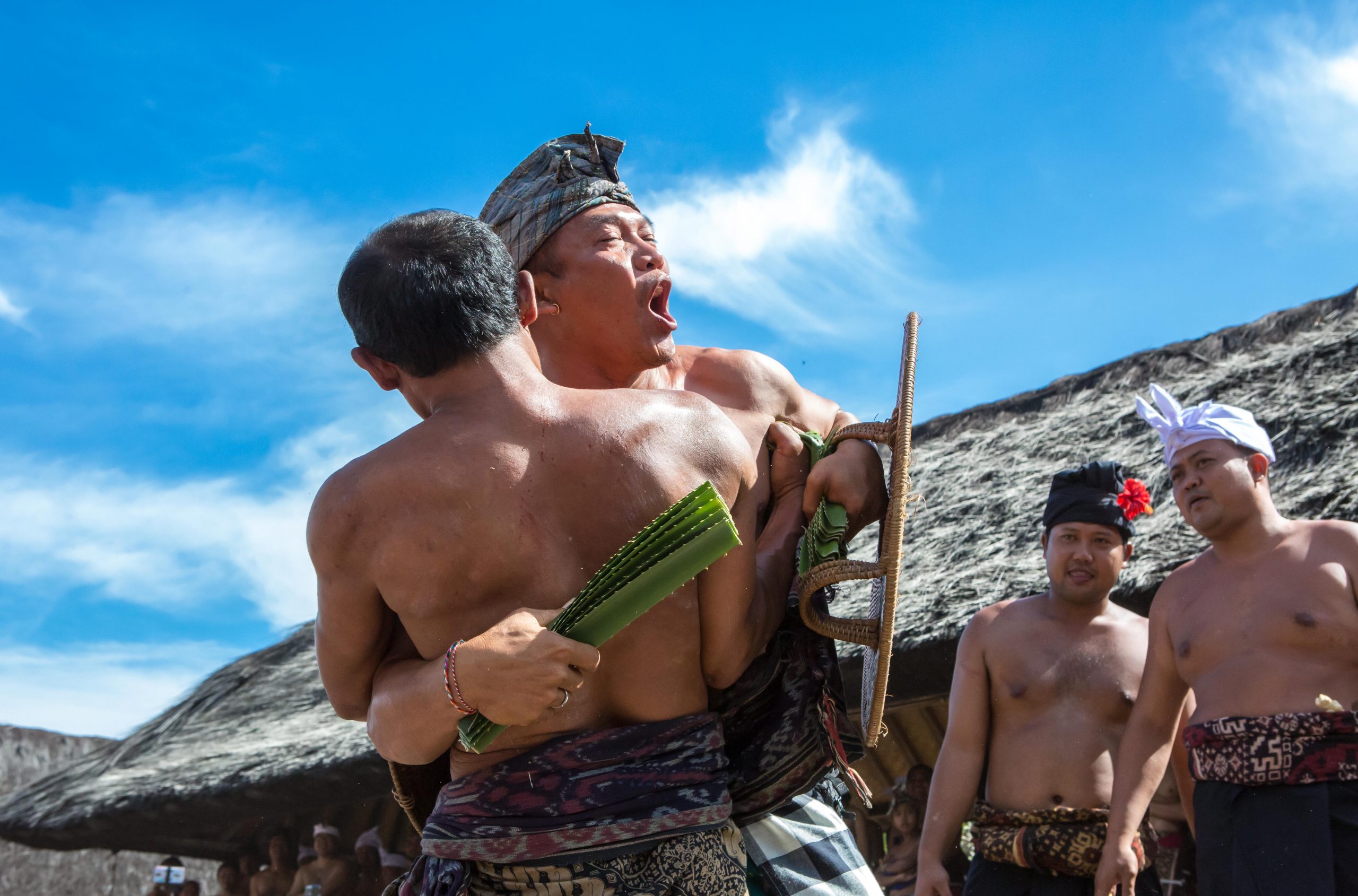
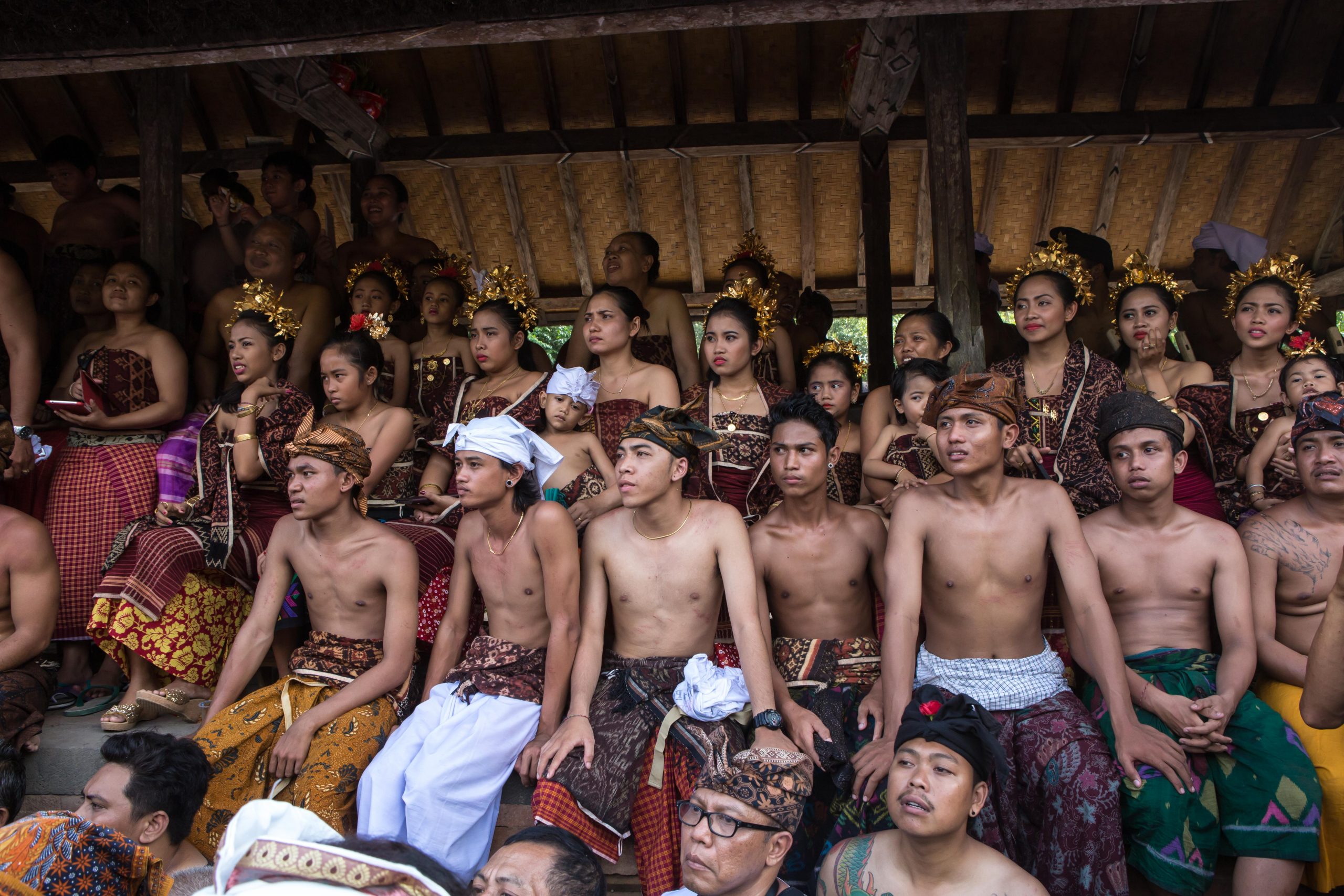
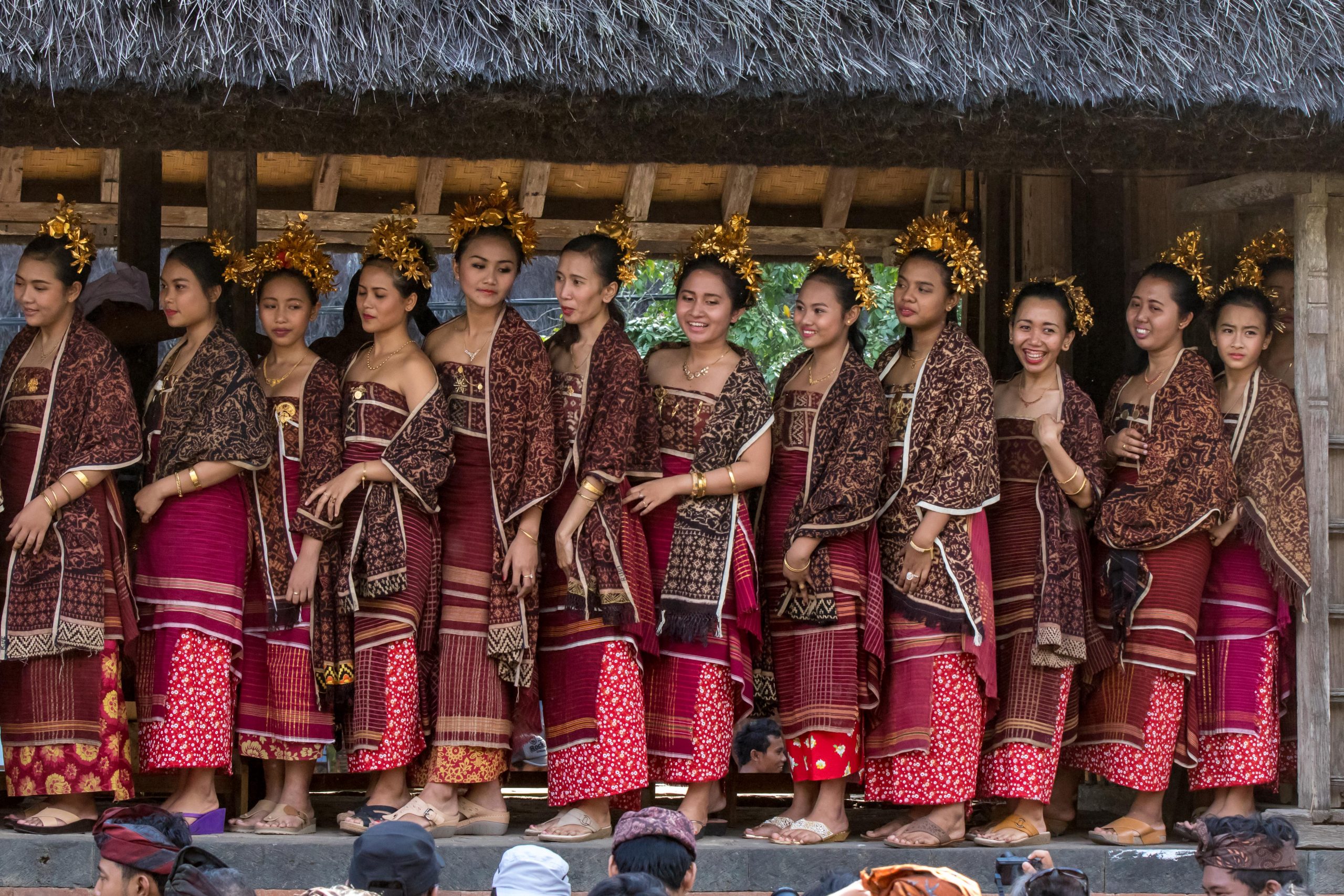
From the central Bale Patemu the young women of the village watch the battles and give encouragement to the men. The women are dressed in the famous hand-woven double ikat textiles, known as ‘Geringsing’, believed to possess the power to protect the wearer from sickness and evil.
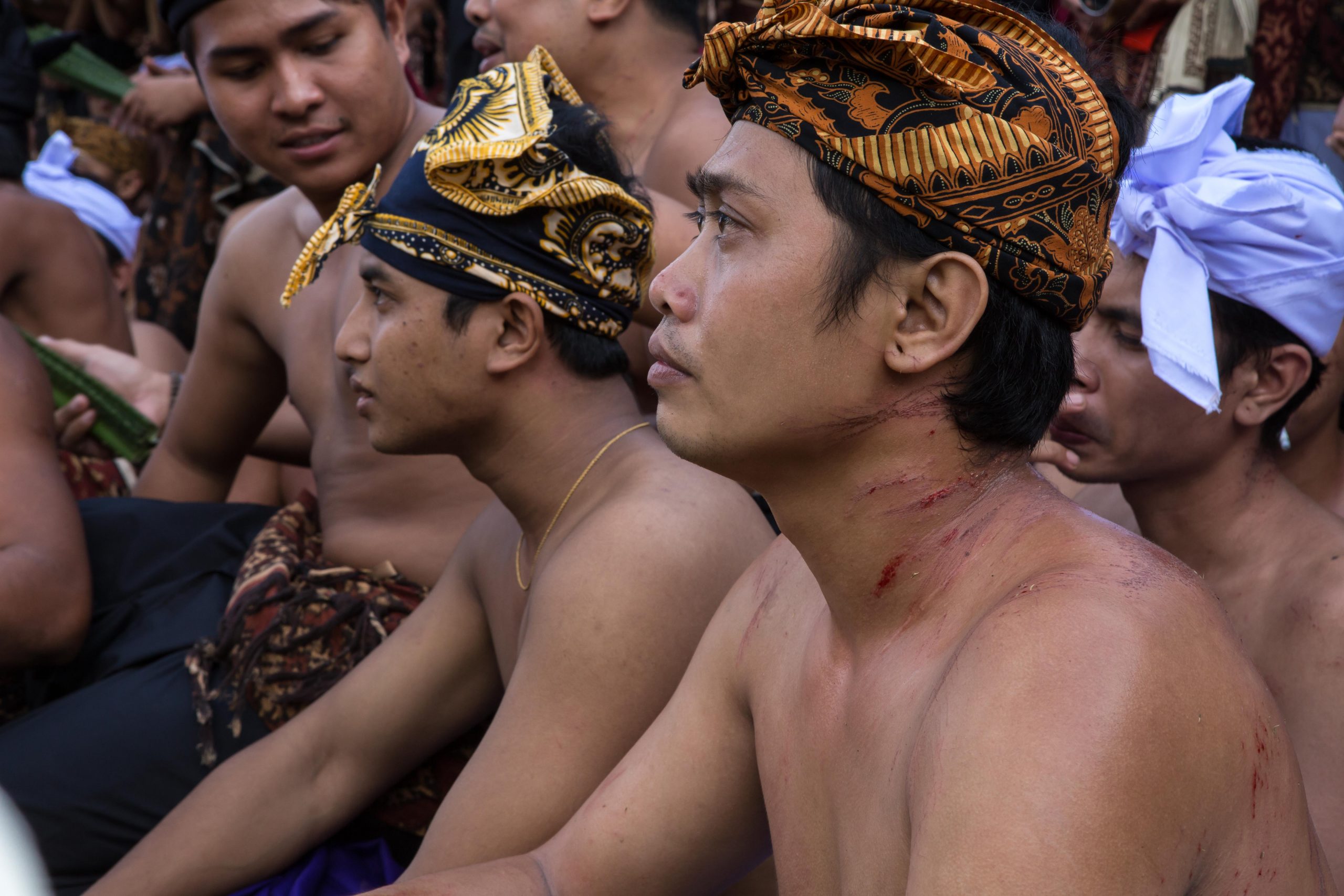
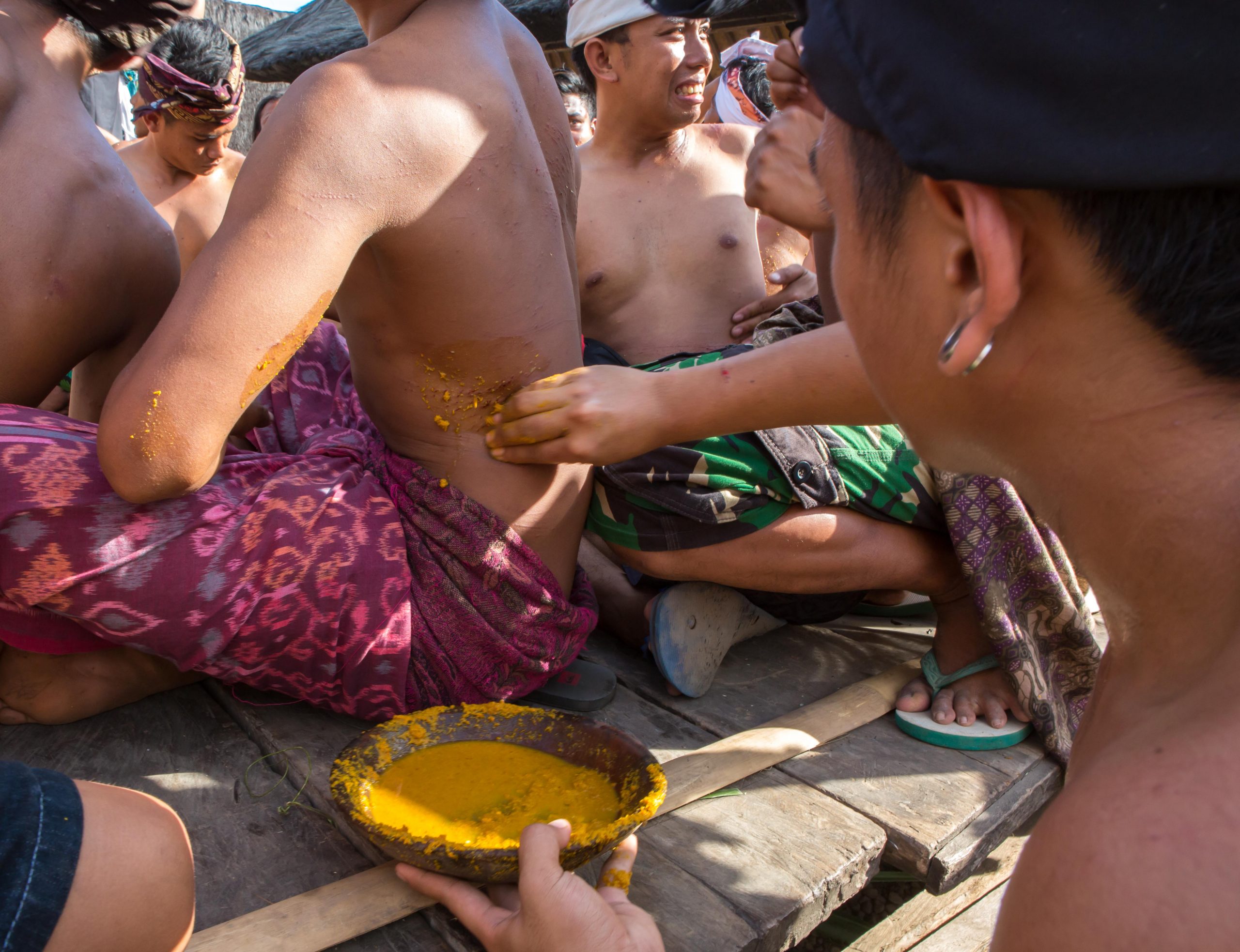
There are no winners or losers; the objective is to draw blood as an offering to the gods. After the battles, the combatants’ wounds are treated with traditional medicine made from turmeric, galangal and vinegar.
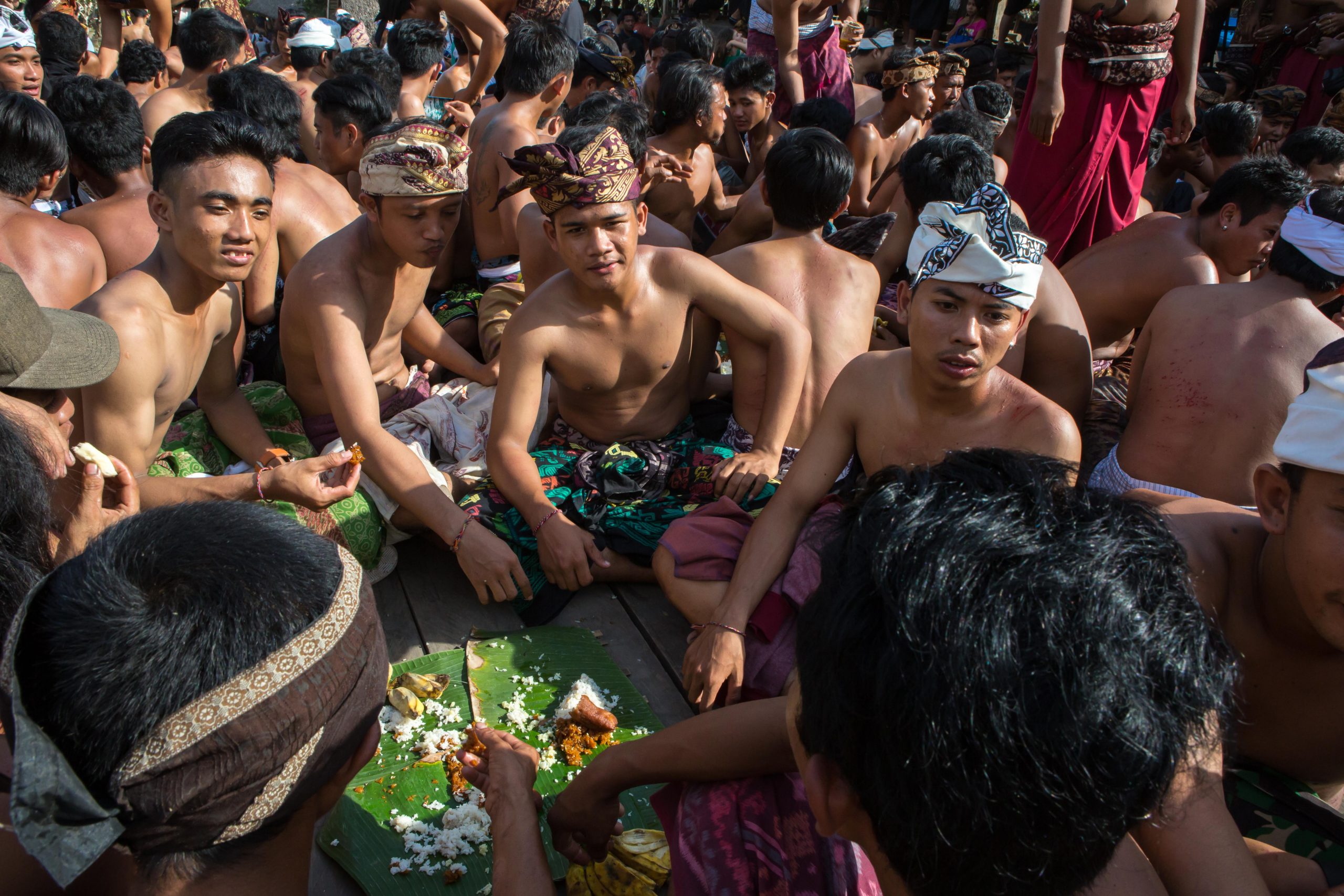
After fighting, the men sit down together and enjoy Balinese food and drink as a symbol of togetherness and camaraderie, known as ”Megibung”.
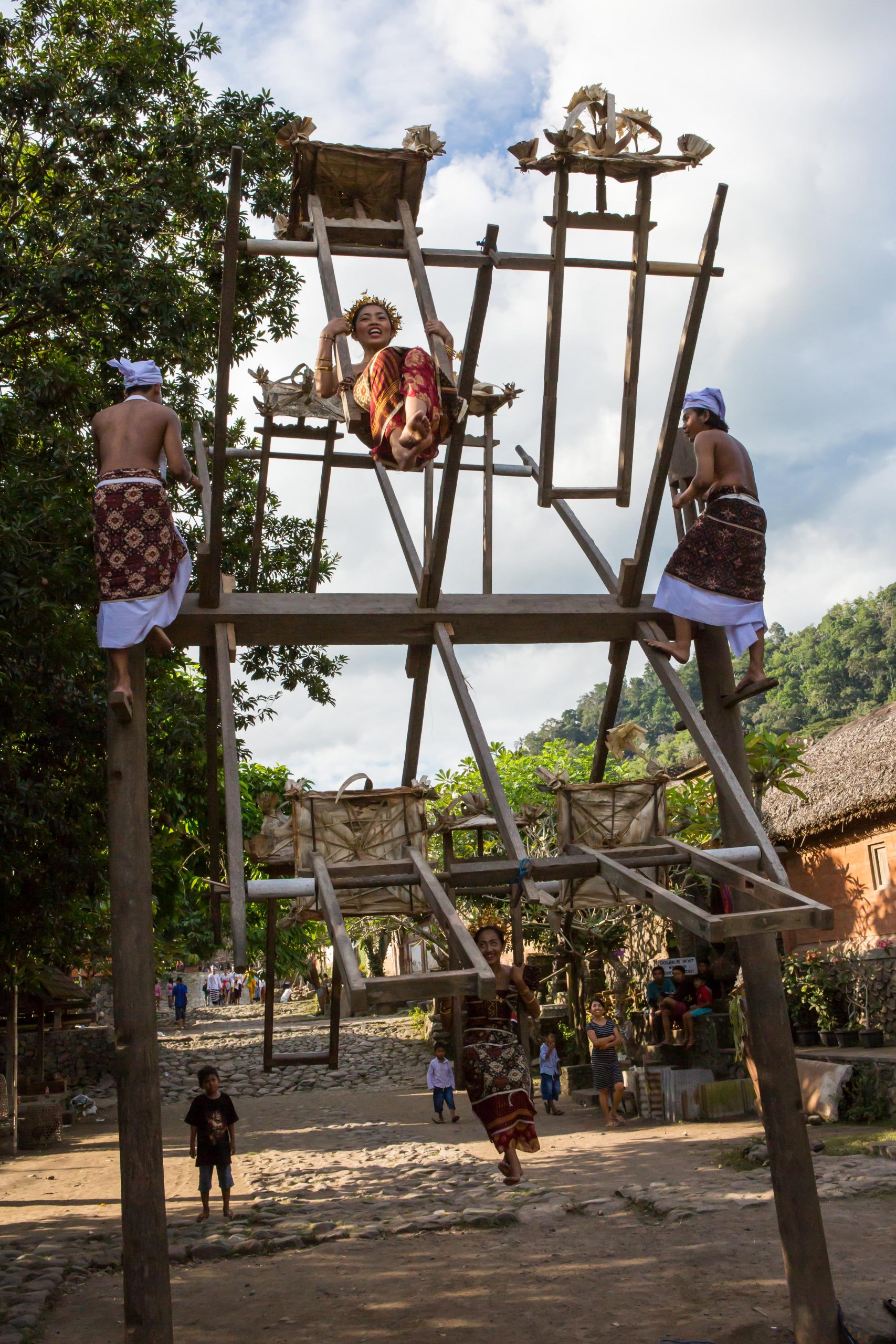
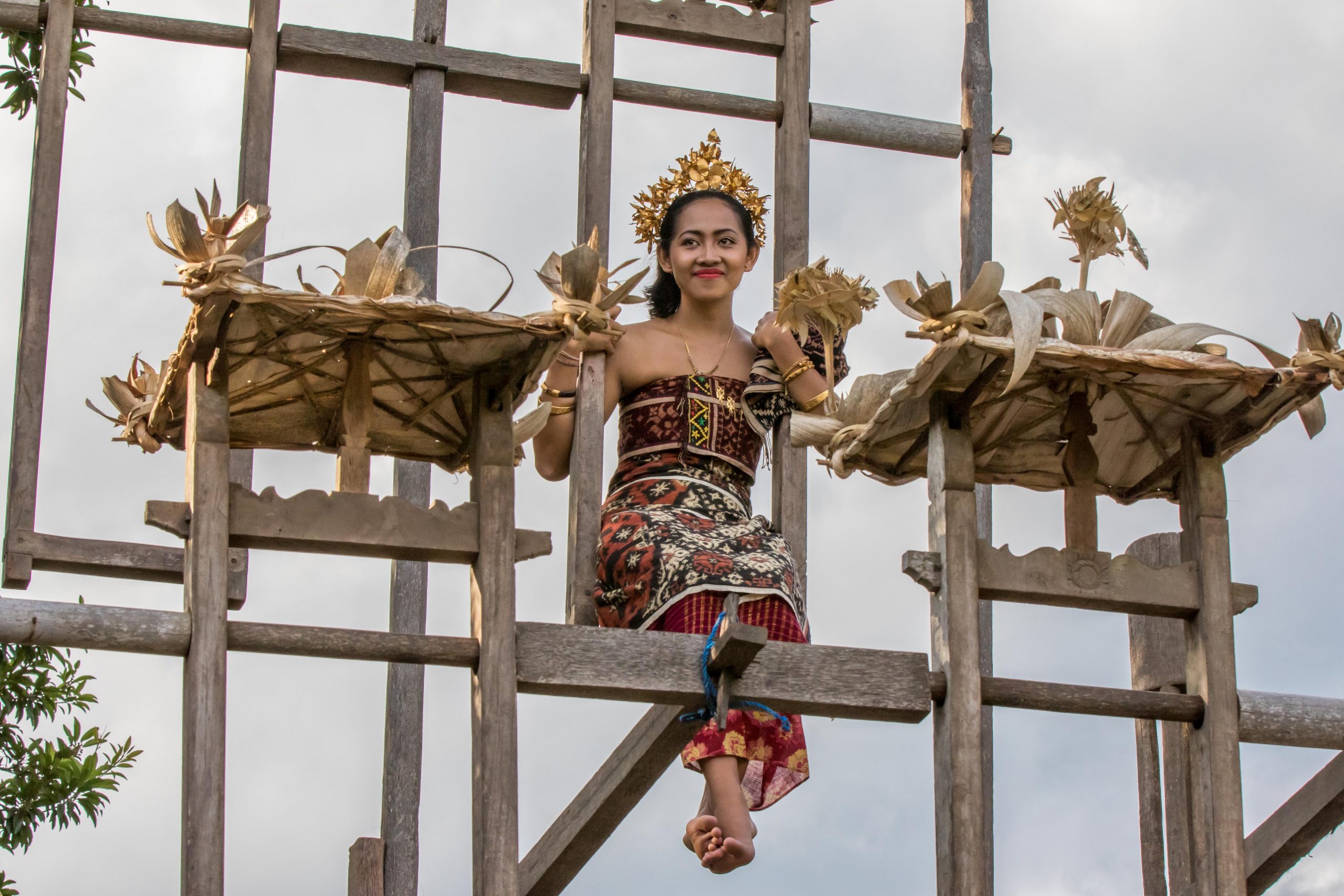
After the pandan fights the young women ride one of the village’s three traditional wooden ferris wheels.
